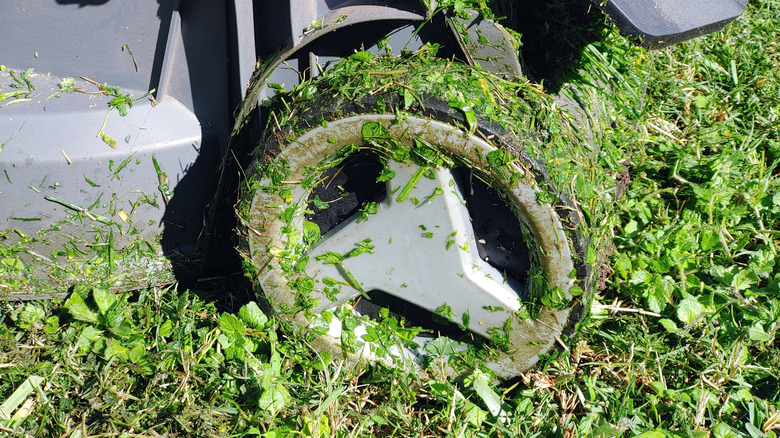Why You Should Never Mow Wet Grass
Every topic under the sun, no matter how momentous or miniscule, has its hotly debated issues. And what's a more notable topic under the sun than your lawn? One oft-debated issue in the world of lawn care is whether or not to mow wet grass. To get a sense of how big (or small) the issue really is, you can take a look at what the seasoned pros do.
Hunker spoke exclusively with Ryan Farley, CEO of LawnStarter, to get a handle on what mowing a wet lawn will do to your mower and to the grass itself. He put simply: "The two big reasons to avoid mowing wet grass are that it's much harder on your mower, and also harder on the grass."
While it might seem counterintuitive, properly mowing grass shouldn't be a seriously damaging exercise (you know, aside from the whole "cutting grass in half" aspect). The difference with wet grass, it turns out, is in precisely how the grass is torn asunder. "When you mow wet grass," Farley said, "the individual blades are much more likely to be torn than cut, which can damage the plant, leading to stress." That stress can include everything from browning your formerly luscious green lawn to opening the door for fungal infestations; when it comes to the latter, these can travel on your mower deck when clumps of wet grass grab on and don't let go until they're over a different area (if they let go at all). Mold and other fungi are obviously already more of a potential problem after a substantial rainfall. As Farley advises, "Ideally, you should wait at least 24 hours after a major rainfall before cutting your grass."
Wet grass also makes for an unpleasant mowing experience
The potential damage to your turfgrass seems reasonable enough, but will running a powerful gasoline or electric motor-powered mower blade over wet grass be damaging to the mower itself? Not really, per our exclusive chat with LawnStarter CEO Ryan Farley, but it sure makes for an awful time cutting the grass. "You're unlikely to permanently damage your mower by mowing wet grass," Farley explained, "but you may have to stop and clean out the mowing deck and/or empty the bags much more often."
That said, is this a one size fits all problem with mowers? Or do different mowers handle the problem in different ways? "Different mowers will have different power levels," Farley said, "which can help them to handle wetter grass. This is pretty much independent of other features like push vs. riding or gas vs. electric. It's all about horsepower."
Do note that straining a lower-powered engine can cause overheating and long-term damage that reduces the life expectancy of your lawn mower. If you're not sure what your mower can handle, a brief test cut should let you know if a mower slows when slogging through the wet lawn (or, worse, your mower dies when cutting the grass). If it does, consider waiting longer until the grass has dried a bit.

